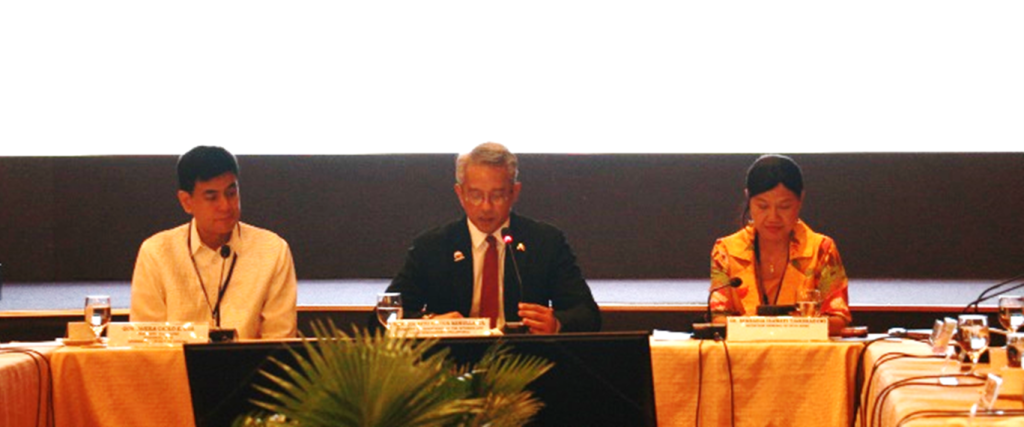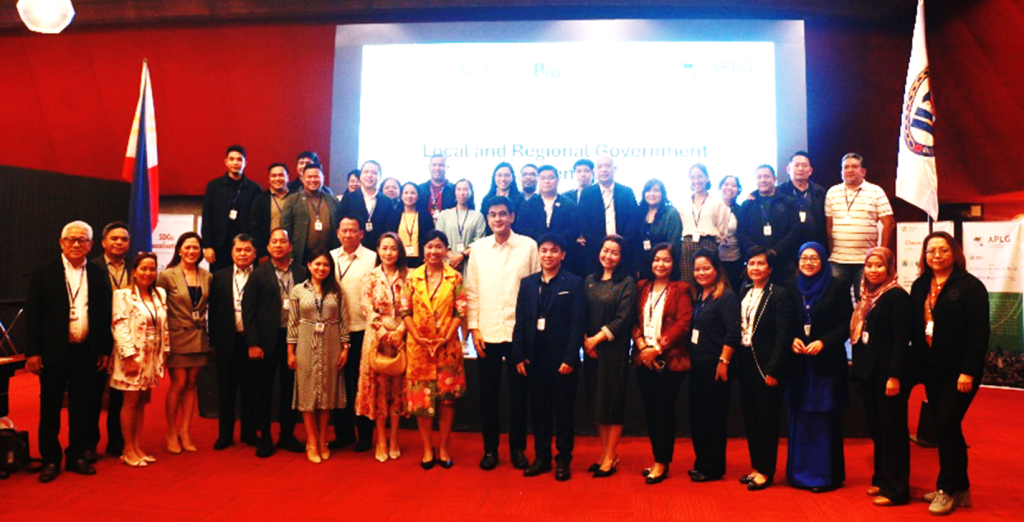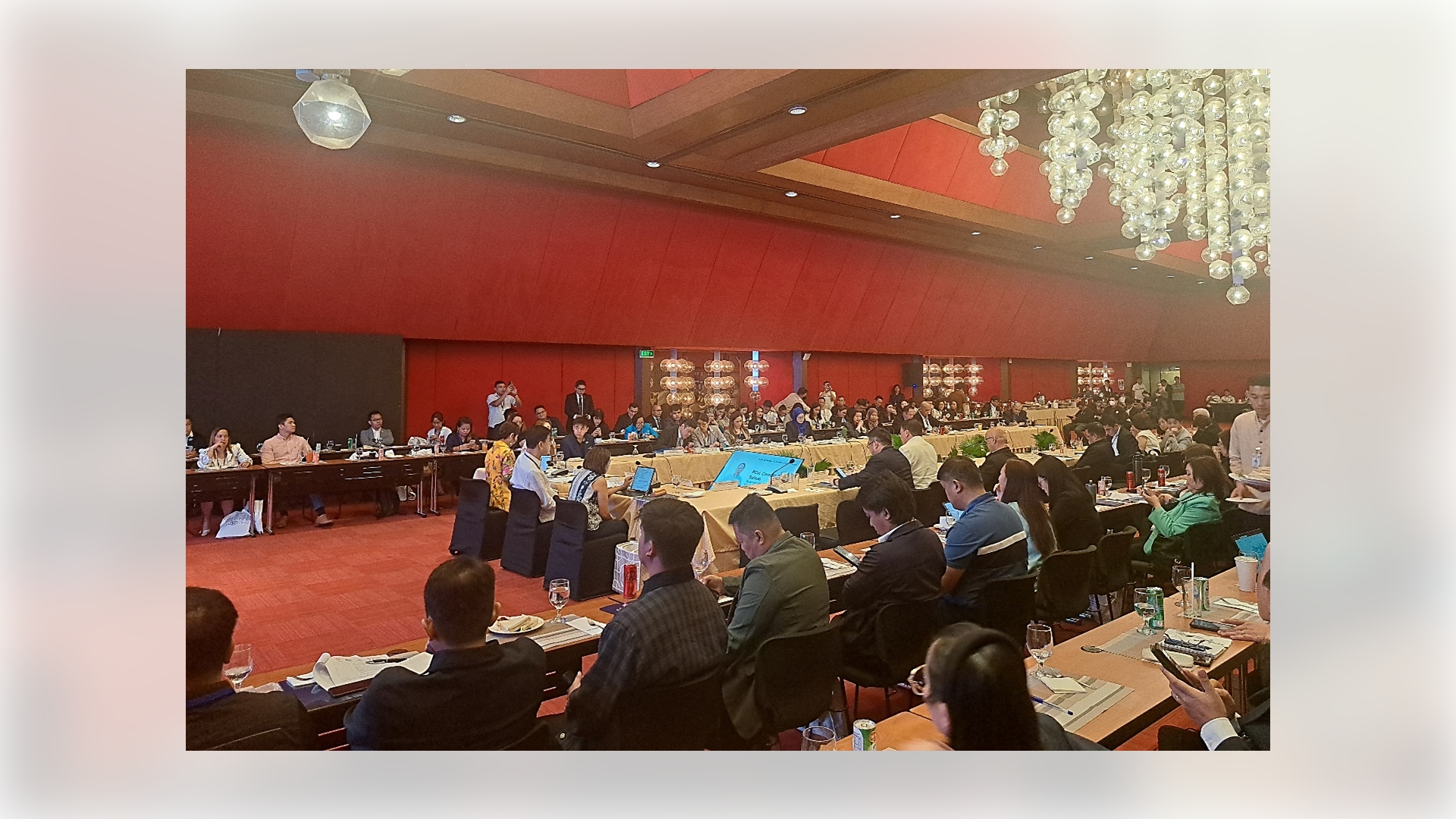October 14-18 2024 | UCLG ASPAC, under the Asia-Pacific Local Government Coordinating Body (APLG) framework, gathered leaders and representatives of local and regional governments for the Local and Regional Government Assembly on October 14, 2024. The Assembly, a pre-event of the Asia-Pacific Ministerial Conference on Disaster Risk Reduction (APMCDRR), collected inputs from 180 distinguished governors, mayors, city councillors and key decision-makers to formulate The Joint Statement of Local and Regional Governments to be submitted to the APMCDRR. The Assembly was hosted by the Department of the Interior and Local Government (DILG) of the Philippines and the Union of Local Authorities of the Philippines (ULAP).

Mr. Dakila Carlo Cua, President of UCLG ASPAC, President of ULAP and Governor of Quirino Province, in his welcome message, highlighted the urgent need to integrate disaster risk reduction and climate action and to provide adequate support, capacity, and financing for local governments. Ms. Imelda Calixto Rubiano, Mayor of Pasay City, expressed that they are developing efficient, modern, and innovative ways to reduce and manage disaster risk. Mr. Juanito Victor Remulla, Jr., Secretary of DILG, expressed his commitment to enhancing the capacities of local governments on disaster risk reduction management and climate change adaptation.
To provide context to the Assembly, Mr. Marco Toscano-Rivalta, Chief of UNDRR Regional Office for Asia and the Pacific, shared four considerations: 1) Climate variability is localised; 2) Recovery and readiness to recover requires strong compact between central and local government, and local government and local actors including private sector; 3) Early warning system needs to be strengthened; and 4) There is necessary transformation of the built environment. Dr. Raditya Jati, Deputy Minister for System and Strategy of Indonesia’s National Disaster Management Authority, stressed the importance of partnership and collaboration in building a safer and more resilient future for all.
The Assembly took stock of local and regional government actions on the Sendai Framework. Following the thematic pillars of the APMCDRR, local and regional governments tackled enhancing DRR financing which included presentations from Makati City, Antipolo City, Cotabato City, Borongan City, Sendai City, and Iloilo Province; ensuring gender-responsive and inclusive disaster risk governance which included presentations from Tayabas City and Quezon City; and Localising the Sendai Framework and Urban and Rural Resilience which included presentations from Ulsan Metropolitan City, South Korea and Segamat Municipal Council, Malaysia.
The Joint Statement of Local and Regional Governments to the APMCDRR was adopted as an outcome document of the Assembly submitted to the APMCDRR. The Statement was delivered by Gov. Cua at the Ministerial Statement segment of the APMCDRR on October 15, 2024.
The Statement highlighted the following:
- Develop and secure data infrastructure at the local level to effectively assess risks and vulnerabilities from climate change and disaster impacts.
- Build capacity to adopt nature-based, sustainable, and tailor-made solutions to manage climate- and water-related disaster risks, particularly for vulnerable areas.
- Collaborate with national governments and the private sector to invest in resilient infrastructure, including blue-green infrastructure, while enhancing cooperation to scale up DRR and climate financing.
- Integrate gender-responsive planning, budgeting, and implementation in local disaster risk reduction and climate action.
Called upon national governments to:
- Ensure the accessibility and interoperability of risk, climate change, and disaster impact data systems across the different levels of government.
- Strengthen multi-level and multi-hazard risk governance by including local and regional governments and other stakeholders in national policymaking processes, and reduce barriers to community engagement.
- Provide financial assistance, technical support, and capacity development to empower local and regional governments in climate and disaster risk governance and sustainable resilience-building.
- Establish financing mechanisms that incentivise investments in resilient infrastructure including blue-green infrastructure, and promote innovative and accessible technologies and tools, and multi-hazard early warning systems.
- Facilitate access for local and regional governments to disaster risk and climate-related development cooperation and financing mechanisms.
Organised by the United Nations Office for Disaster Risk Reduction (UNDRR) and the Government of the Philippines, the APMCDRR had the theme “Eyes on 2030: Enhancing ambition in Asia-Pacific to accelerate disaster risk reduction.”

Photo Credit: ULAP











